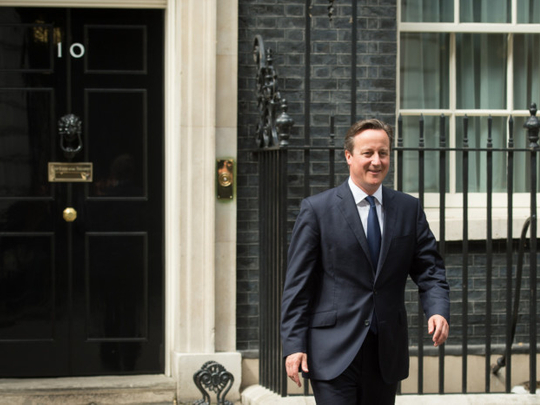
While the British media focused on the fallout of Prime Minister David Cameron’s stance in seeking to expand British air strikes against Daesh (the self-proclaimed Islamic State of Iraq and the Levant), news outlets in the US scrutinised in great detail US President Barack Obama’s leadership in battling terrorism. “It is only three weeks since the terrible attack on holidaymakers in Sousse in Tunisia that left 30 Britons and eight others dead, gunned down while sunbathing on the beach,” said the Guardian in an editorial. “Such cruel assaults unsurprisingly provoke calls for something to be done ... At the time, the defence secretary, Michael Fallon, whose enthusiasm for military engagement is earning him the title of ‘Bomber Fallon’ in some quarters, suggested it was time to reverse parliament’s decision of two years ago and bomb [Daesh] strongholds in Syria,” the newspaper observed, before underlining the failure of the British government in disclosing its complete role in the battle against Daesh. “But it is now clear that even as both Cameron and Fallon were calling for a new vote, both were also aware that British military personnel were in fact already involved in bombing missions over Syria ...”
The Independent, on the other hand, observed in an editorial that “a consensus has grown [in Britain] that, in so far as air attacks are having any effect on its advance, confining strikes to Iraq is illogical” when Iraq is not Daesh’s operational hub and noted that “politically, this is an opportune moment for Mr Cameron to push for change”.
However, it conceded that while coalition air strikes may indeed stop Daesh from capturing certain towns ... “the problem is that an obsessive faith in the transforming power of air strikes may also prevent governments throughout the West from accepting the fact that the map of the Middle East has changed forever”.
The Washington Post, meanwhile, examined in great details what it titled ‘America’s latest failure in Syria’. Noting that in May last year, Obama promised a new US effort to train moderate Syrian rebel forces and asked Congress for $500 million (Dh1.83 billion) to fund the effort, the newspaper pointed out in an editorial that “numerous analysts quickly pointed out two big flaws in the plan: The new force was too small to make any major impact in Syria, and the administration was limiting it by insisting that it target only Daesh and not the regime of Syrian President Bashar Al Assad”. The newspaper added: “The latest US failure in Syria is particularly striking because the foundation of [President Obama’s] policy in Iraq and Syria is to train local forces that the United States can support.”
The Toronto Sun said in an editorial: “We may be tired of writing about them. You may be tired of reading about them. But [Daesh] certainly isn’t tired of continually increasingly their savagery.” Drawing global attention to the new propaganda video that shows a child soldier beheading a Syrian prisoner, the newspaper said in an editorial: “Regardless of religion and nationality, practically every person in the global community is equally horrified by these actions.”




_resources1_16a31069e4e_small.jpg)






